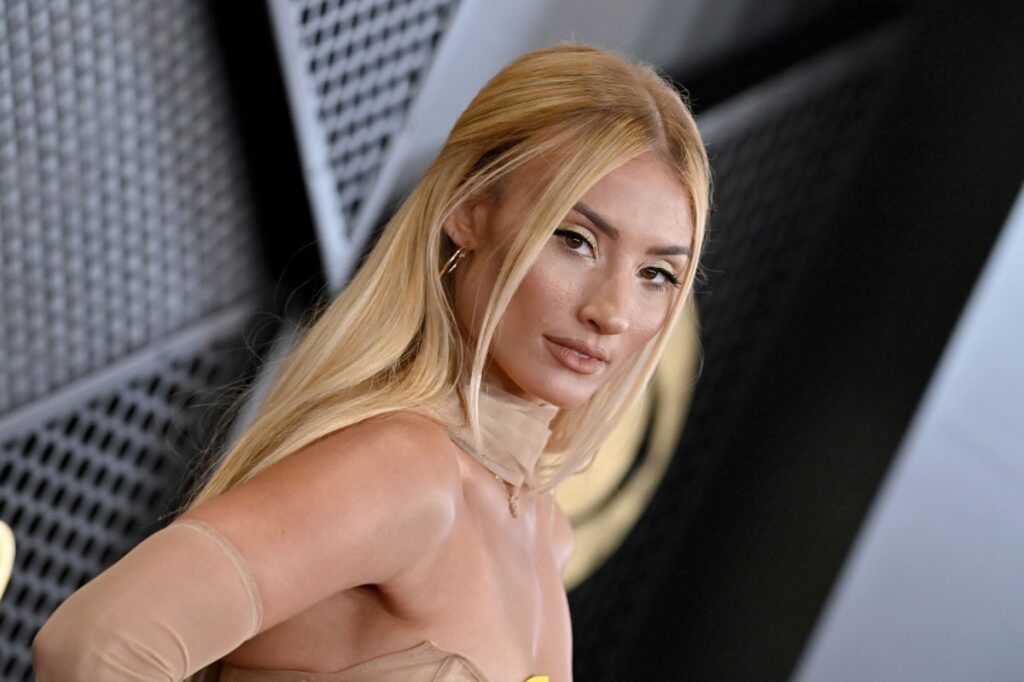In a world where fragmentation and cultural diffidence are prevalent, enter Montana Tucker – a TikTok sensation, not just for her viral maneuvers but her profound stance on the global political landscape, particularly the crisis concerning Israeli hostages held by Hamas. Recently, she was in the limelight for her audacious fashion statement at the Grammys – a dress illuminated with a plea to save these hostages. Rather than basking in the glow of musical accolades, Tucker chose to raise a different toast, a toast to freedom, empathy, and liberation.
In her intriguing conversation with Ben Shapiro, the Editor Emeritus of Daily Wire on his show, she elaborated her stance further. Tucker, known for her bold expressions, humorously regretted Shapiro’s absence at the Grammys, given his top charting rap venture, “Facts”. As always, Tucker’s decisiveness was present in full flair as she defended her politically-inclined ensemble. When questioned about her provocative dress, Tucker boldly stated, “I don’t find it to be political. It isn’t political to bring the hostages home.”
The TikTok star articulated the diversity of those held captive, emphasizing their Americans and not merely Israelis. In a firm rebuttal to the Recording Academy’s issue with her political stance, she firmly maintained that her cause was far from political but distinctly humanitarian in nature. Tucker acknowledged her apprehension about the reaction towards her bold ensemble move, but her determination was undeterred. Compelled by her conscience and the opportunity to make an impact, Tucker valiantly paraded her belief – a testament to the power of standing for something impactful and transformational.
Recalling the Grammys, Tucker expressed the resistance she received from the Grammy officials, citing her dress as too political. The irony did not skip Shapiro’s attention who quipped about the Grammys’ history of political undertones. Even amidst such criticism, notably, Tucker received assurance from Harvey Mason Jr., who applauded her courage.
A candid conversation ensued after the Grammys, where Tucker expressed her astonishment at the overwhelming support she received for her bold statement. She pointed a mirror at the fear gripping individuals who, despite their desire to support her cause, held back out of fear of damaging their careers, showcasing the gripping fear of societal backlash and cancel culture.
Emphasizing the duty of individuals with privileged platforms to spearhead causes they believe in, Tucker asserts, “If we’re not standing for something, what are we doing?” She further drew attention towards the misinformation marring the actual issues, thereby diluting the fight for justice and truth and reminding the world of the urgency to bring innocent people back home.
To conclude, Montana Tucker’s bold personal expression reaffirms the immense power of a platform when used for conscientious advocacy. Her audacious fashion statement at the Grammys wasn’t merely a matter of sartorial assertiveness; it was a declaration of steadfast belief in justice and the protection of human rights. Tucker’s authority has transcended popular dance movements on TikTok, seeping into the contemporary political discourse, and prompting a much-needed dialogue about the sociopolitical responsibilities of public figures. In an era saturated with information and digital identities, Tucker has demonstrated that celebrities can employ their influence to prompt critical conversations and take a stand for what they truly believe in.



